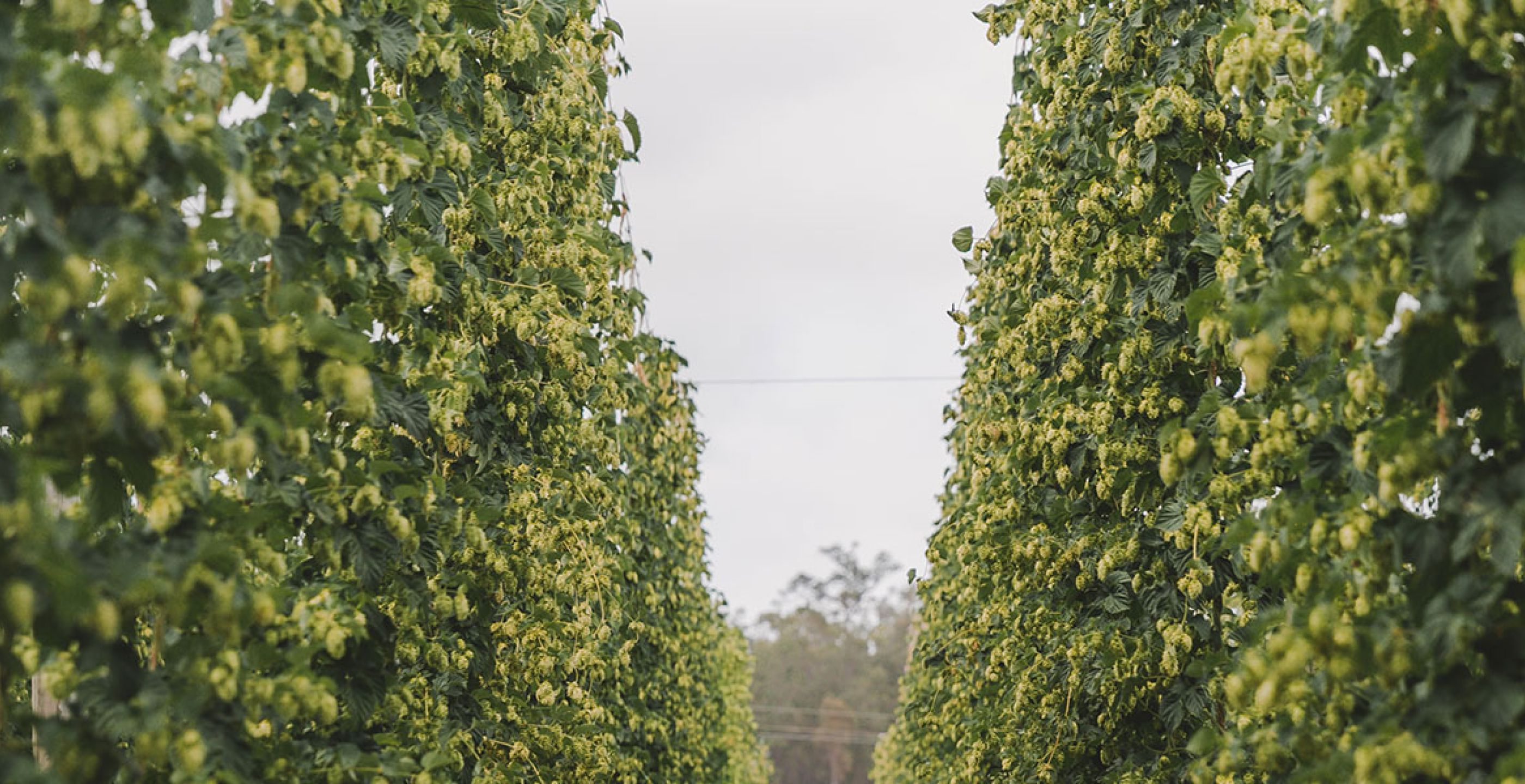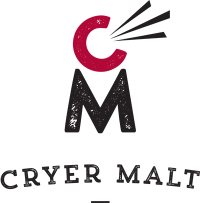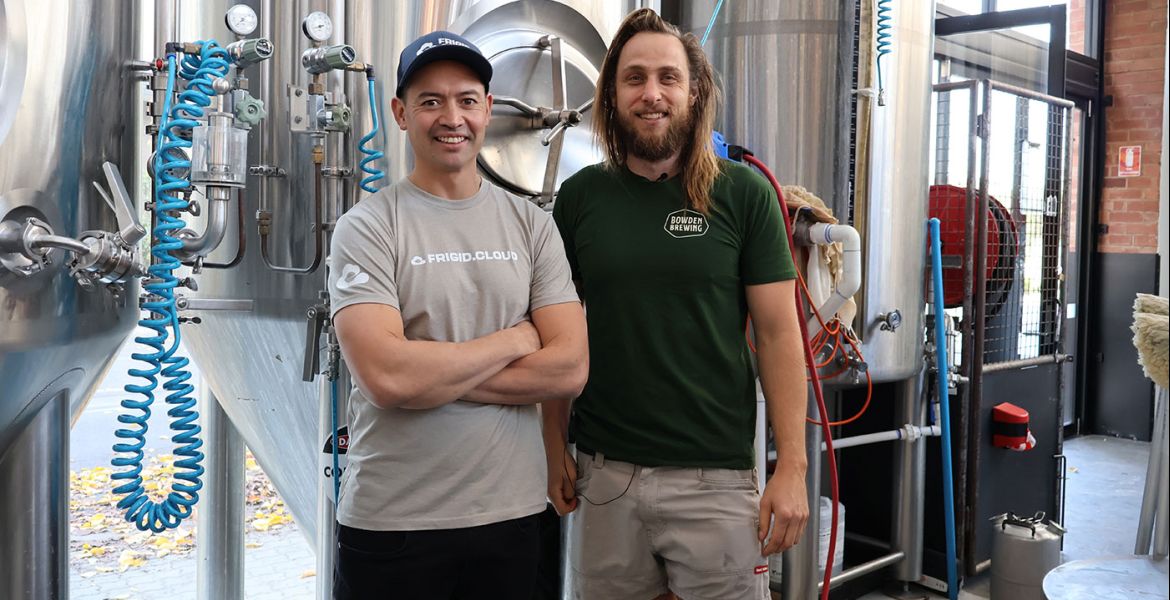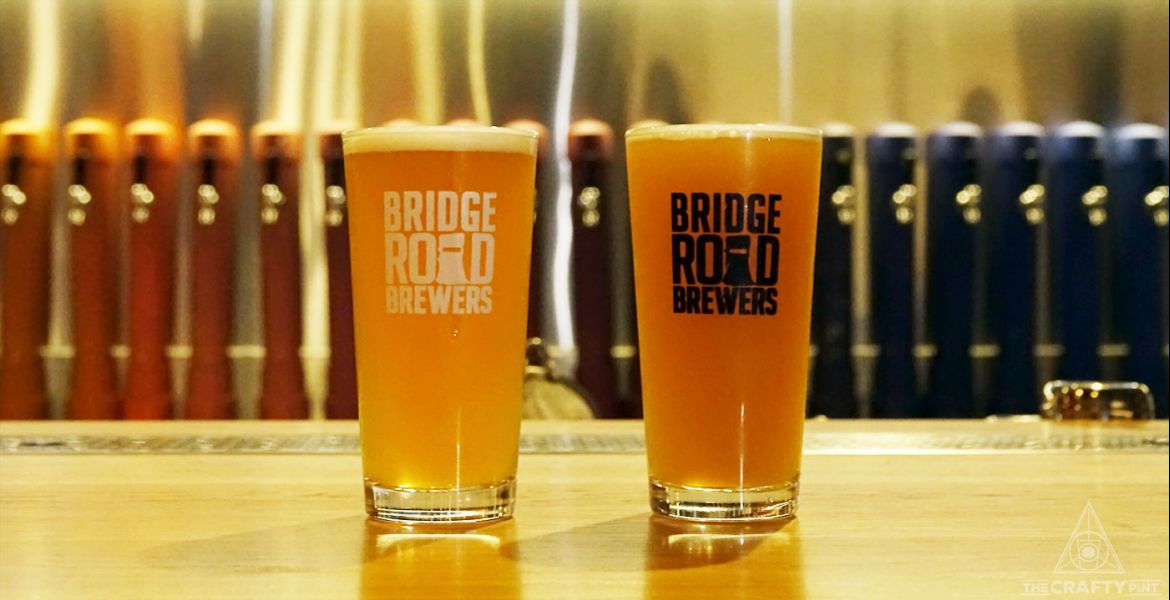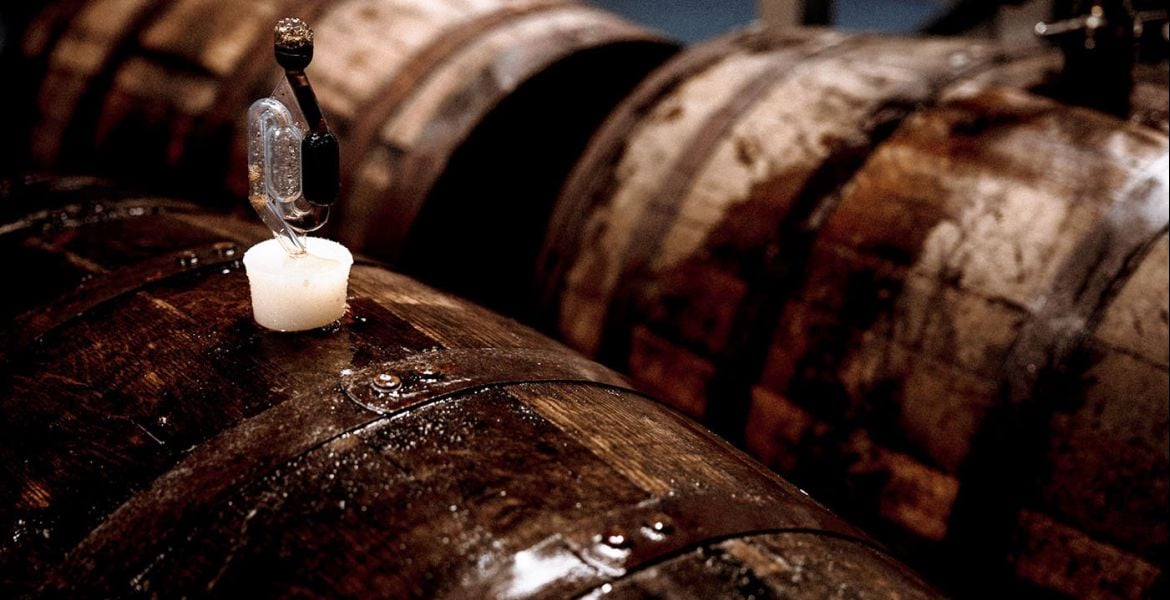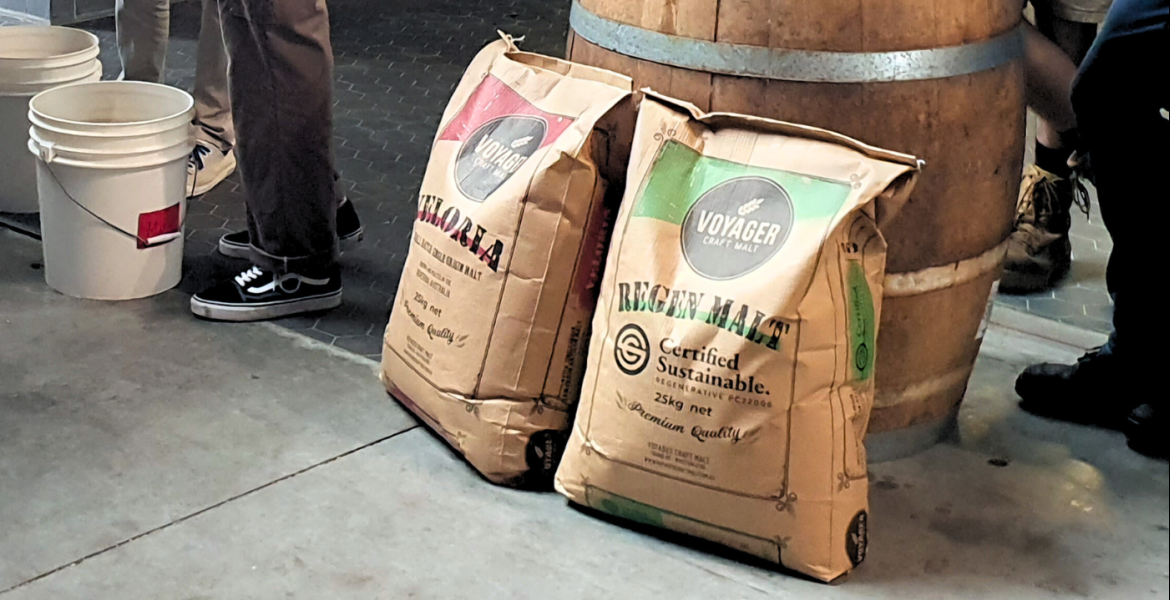Yakima, Saaz, Willamette Valley, Hallertau, Nelson and Bushy Park. There are plenty of famed hop growing regions around the world, some of which have been growing hops for hundreds of years.
Australian hop growers are responsible for some highly sought-after varieties, yet only produce around one percent of the worlds hops, with most grown in Tasmania and Victoria’a High Country.
But, in WA’s idyllic South West, there's a growing band of small producers growing fresh hops, and playing with lesser-seen varieties, for the local craft scene.
With around 20 craft breweries calling the wider region home, many of them are in pursuit of fresh hops produced within the temperate region, better known for its premium grape production. Across a few small farming towns, some with less than a hundred residents, growing is proving successful too, with the yearly harvest in growing demand from the state's brewers.
Following 2023's harvest, we caught up with the region's small growers to find out how they got into hops, how their businesses are travelling, and what's on the horizon.
The hop farms
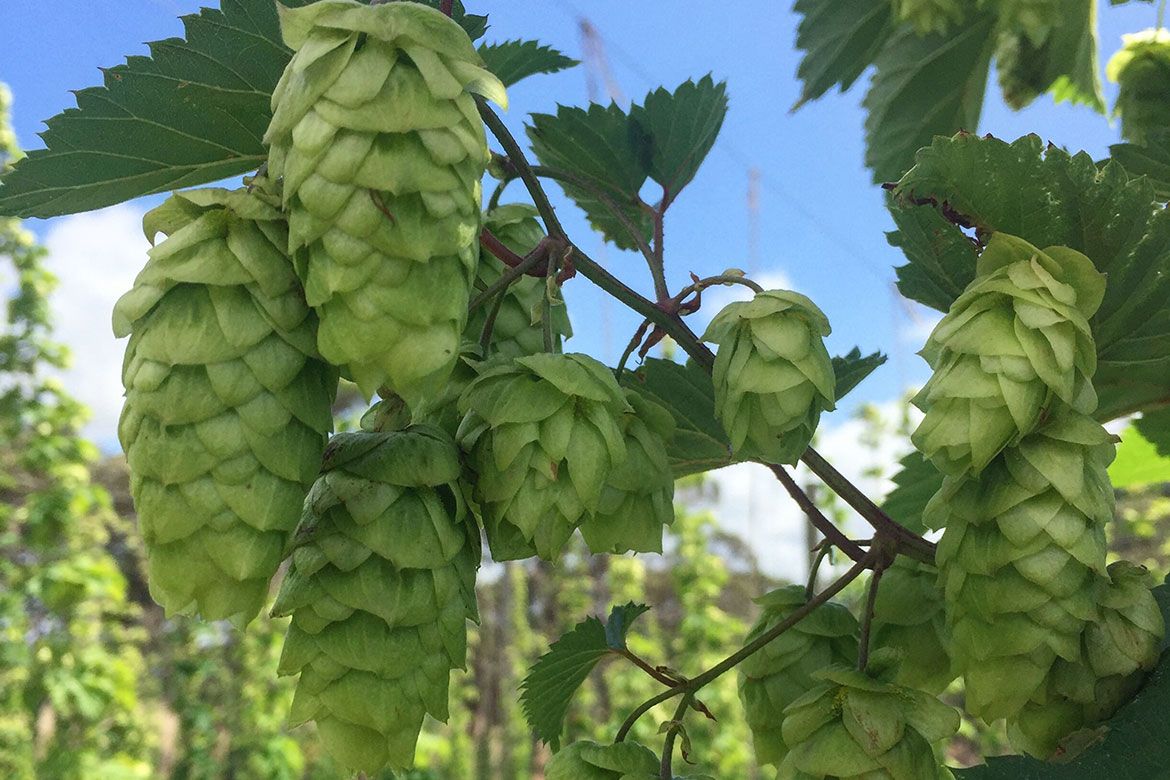
Preston Valley Hops
Preston Valley is probably best described as a "tiny town", nestled within the Ferguson Valley, a small but stirring food and wine region 40 minutes from Busselton. Here, Alexis and Aaron Davey grow a small volume of hops at Preston Valley Hops, sending much of what they grow direct to local breweries on the day of harvest, while also being the first in the region to pelletise for year-round supply.
South West Hops
South West Hops is smack-bang in the middle of the popular tourist town of Bridgetown (home to Full Circle Brewery) and Manjimup, known across the globe by gourmands as a truffle-growing region, and home to Tall Timbers Brewery. Their current output is small, but they have big plans for growth on their regenerative hop farm and have already been collaborating with Rocky Ridge over the last few years.
Karridale Hop Farm
Trey and Olivia purchased Karridale Cottages in 2015, with a vision of running their cottages and property with the environment in mind, installing solar power and rainwater tanks to restore native bushland. The property proved a perfect spot to build a family, and grow some fresh hops for local brewers. Today, they’re a wealth of knowledge that other growers now look to for advice and inspiration.
Hopshed
Hopshed, located in Mayanup alongside the Blackwood river, was once a hobby for Drew and Katie but quickly grew into a productive and profitable enterprise. Supplying rhizomes, instead of actual hops, to both homebrewers and commercial growers, the team at Hopshed have found a niche in the growing hop market within the South West but are also busy supplying to the East Coast, all while adhering to organic and permaculture principles.
Great Southern Hops
Throwing in the city life and starting fresh on a farm is a dream likely considered by many. For Aaron and Laura Alexander, that became reality after falling in love with the South West and purchasing some land near Denmark. With agriculture and brewing in mind, they decided to grow hops commercially and since planting their first hop yard in 2018, they’ve grown to supply hops for plenty of WA brewers, including Northbridge Brewing Co and Lucky Bay Brewing Co.
When did you plant your first bines?
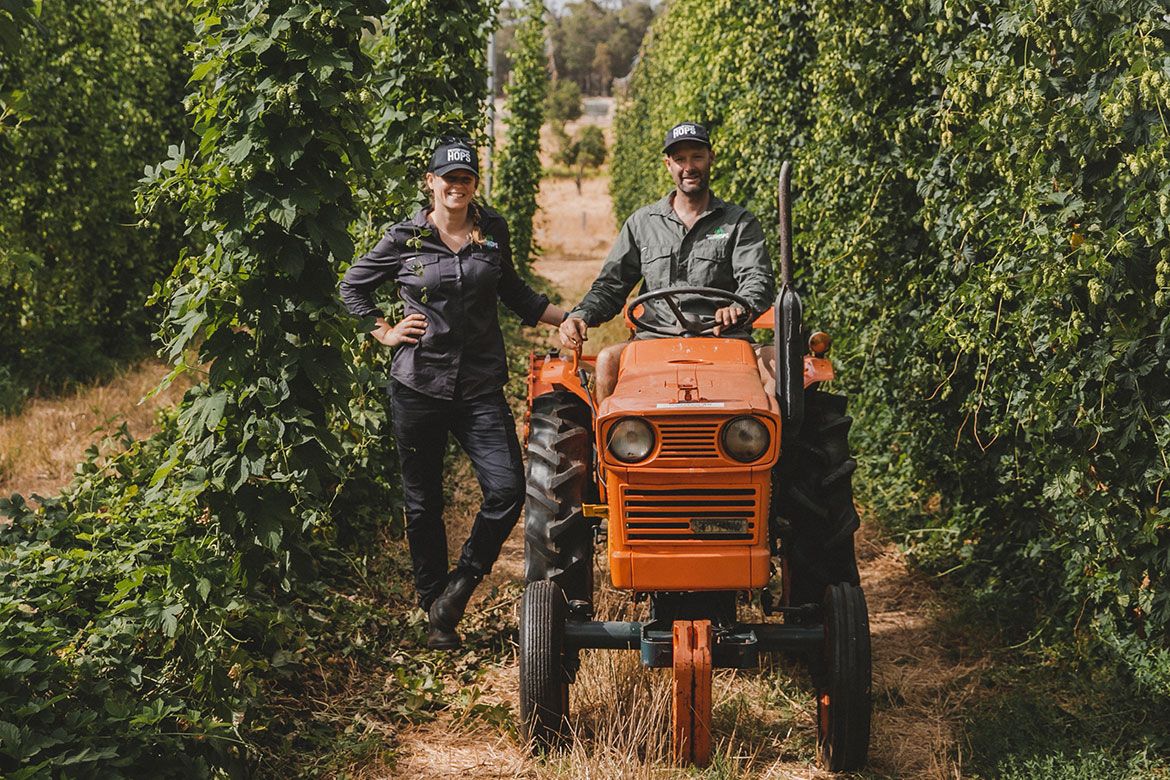
Preston Valley Farm: We planted our first trial plants in 2016. In 2017 we built a quarter acre trellis and started to propagate plants as fast as we could to fill it. We moved farms before the 2019 season and quickly moved our hop yard and built a new “V-Trellis”, which expanded our capacity to 900 plants (a full acre). This is the size of our hop yard today.
South West Hops: We planted our first trial plants in 2014 with 23 varieties. We found what worked and what didn’t in context to the environmental factors etc. We then set out to buy land to begin our commercial-sized yard. We found a 100 acre property in Yornup and planted November 2021 on 4300sqm of yard.
Karridale Hop Farm: We planted our first rhizomes in Karridale in Winter 2015; we originally planted out 13 varieties and now have 0.53 of an acre under bine. We saw how small-scale, independent hop farms had worked in other countries and thought we could find a way to make it work for us. We definitely followed our passions with this one.
Hopshed: We first became interested in growing hops when we moved to our farm in Mayanup in 2017. We’re both interested in homebrewing beer and country wines and we found it difficult to source the number and varieties of hops we wanted, due to the limited number of hops growers selling rhizomes, and WA’s strict quarantine rules.
Great Southern Hops: We planted our first test batch in 2017 and then developed and started planting out the hop yard in 2018 and 2019. Our first real harvest was in 2020.
What is your annual output today?
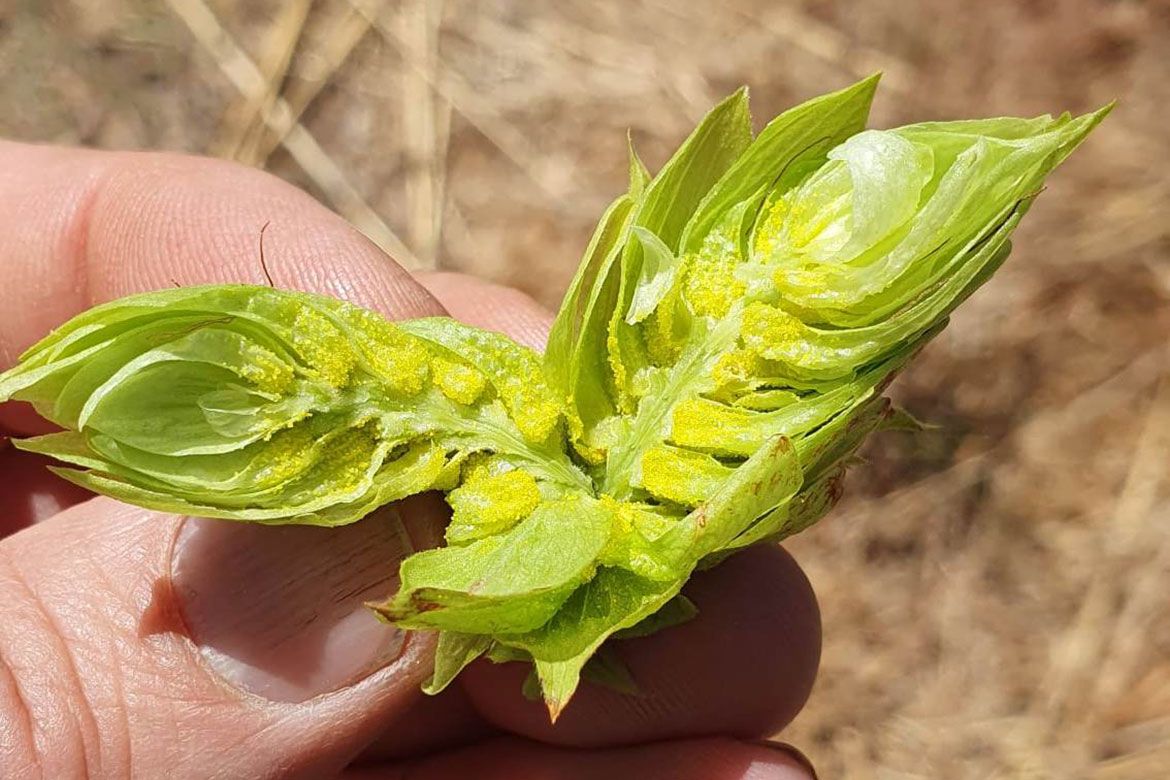
Preston Valley Farm: We harvested about 600kg of fresh flowers this year which translates to about 200kg dry weight. We supplied hops same day fresh from the bine to the brewery, dried whole hop flowers and in hops pellet format.
We’re still experimenting with different varietals and growing techniques, so are yet to reach a maximum yield at this site.
South West Hops: We managed to pick over 320 kgs wet – all by hand and with each cone around or under a gram in weight. We have picked nearly half a million individual cones. Sadly, due to our work commitments and Mother Nature, we were only able to pick a quarter of our yard.
Karridale Hop Farm: It continues to rise, 2023 harvest wasn’t our best ... or our worst. It continues to prove a great opportunity for family and friends to be able to harvest this amount over four to five weeks of harvesting, the volume and output works for us.
Around 100 kilograms went into fresh wet-hopped beers in Margaret River this season, around another 20 kilograms have gone into beers in the dried, fully-processed format and five kilograms of dried hops have been sold to local kombucha and tea companies.
Hopshed: We sell around 400 rhizomes per year. So far, we only offer rhizomes for sale and keep all the hops cones that we harvest for our own personal homebrewing.
Great Southern Hops: It has changed every year as we have been moving and replacing plants over the last few years depending on what grows well in our climate and what the brewers want. We have now established what works well for us and what also works well for brewers so now we are just trying to get our hop yard fully established – currently, it’s a mix of mature, second and first-year plants.
What are the challenges of growth? What size do you hope to get to if you plan on growing?
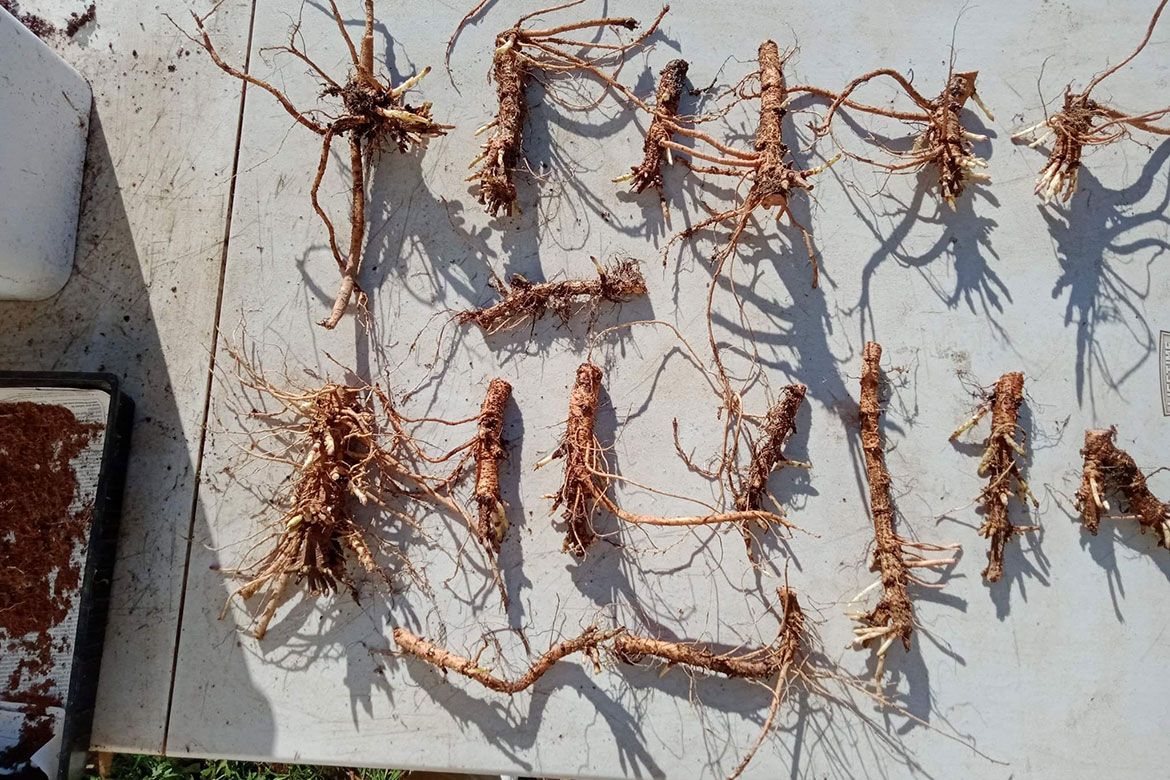
Preston Valley Farm: We’ve spent the last few years working intensely with the growers at Karridale Hops and Great Southern Hops to share knowledge, discuss growing and processing techniques. Our farms are all around the one-acre size, which is about as big as you can go operating as a small family business – with plenty of help from friends, family and keen brewers at harvest time!
I work full-time in a brewery, Froth Craft Bunbrewery, so can’t dedicate more time to the hops.
South West Hops: Wind is an issue, which we intend on using a mixture of shade cloth and hedging to mitigate for next season. Water availability is another focus area from which we have added, this season, another dam to ensure water supply continuity.
We are taking a steady but sure approach to our growth strategy. Firstly, we are finalising details to purchase the required machinery from Colorado to ensure we can harvest our plants in the required time frame. Once this machinery is in and proven, we will expand to ten to 20 acres over the next few seasons.
Hopshed: The key challenges for us are water supply and wind damage. Mains water is not an option for our farm, and our water supply is entirely reliant on two rainwater-fed dams. The amount of water available significantly limits the growth of our business. Wind damage is also a challenge, with hot easterly summer winds currently impacting the quality of the cones. We have planted native trees in windbreaks that will take another two to five years to mature and protect the cones from damage.
Great Southern Hops: It’s just Laura and I that run the hop farm so at our current scale it’s just about manageable. We have had to rely a lot on help both developing and harvesting. We also farm organically and using regenerative principles so naturally everything we buy in terms of fertiliser is more expensive and the way we farm is more labour-intensive. We don’t sell our hops as organic hops – it’s just the way we want to farm.
What products do you offer? And who buys them?
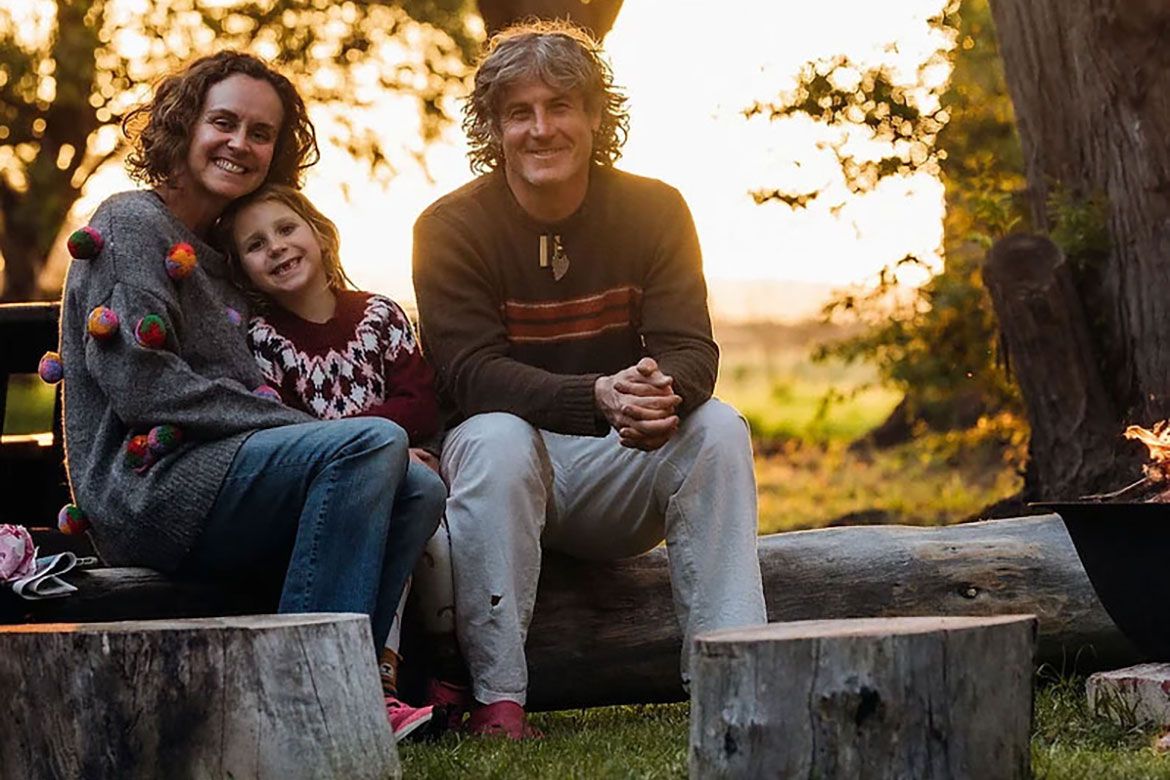
Preston Valley Farm: We currently grow Chinook, Nugget, Victoria, Flinders and Beedelup in fresh whole cones at harvest time, dried whole flowers by special order, and pellets year round.
We’ve had tremendous support from a number of local breweries and home brewers. We sell our pellets exclusively at Lager Land home brew supplies in Bunbury. I’d like to mention Nowhereman Brewing, King Road Brewing and Bevy Brewing, who have been huge supporters from very early on, not only purchasing our hops but coming down to the farm and learning about hops as an agricultural product and how that relates to what ends up in the glass.
That education goes both ways as we discuss the best ways to use our hops in the brewhouse.
South West Hops: We have five varieties: Victoria, Cascade, Flinders, Columbus and Vienna Gold, which will be renamed in the near future, with that process to be determined and will be shared shortly. Renaming is due to the fact it is an unknown variety in terms of collated history but is a close resemblance to Spalt. This is a brilliant opportunity for us.
We have collaborated with Rocky Ridge Brewery and Full Circle Brewery for the last two years and with our increased capabilities via the machinery, we hope to have interest from Western Australian breweries who support a locally sourced philosophy.
Karridale Hop Farm: We offer seven varieties commercially and grow another seven for ourselves. All varieties are available fresh and wet, delivered fresh to the brewer the same day they were picked … cannot get any fresher! We offer fresh, new season pellets for brewers to use as feature hops in fresh ales and lagers as well and we feel fortunate this season to have all our 2023 harvest stay within the cozy confines of the Margaret River Region. Brewers supporting local farms and locally grown ingredients.
Hopshed: We currently sell 26 non-proprietary varieties of hops that are available by mail order. We are in an enviable position in WA as we are currently able to send rhizomes to all mainland states and territories without quarantine restrictions and our customer base is predominantly home brewers who are wanting to experiment with their own home-grown hops. We’ve also been approached by several craft breweries in Perth and the South West to supply them with hops rhizomes to adorn their beer gardens, and we have also sold rhizomes to several commercial hop growers in the region.
Our most memorable customer was a florist who used some of our hops cones to create amazing buttonholes for a homebrewing groom and his groomsmen for their special day!
Great Southern Hops: In our hop yard, we currently grow Victoria, Chinook, Hallertau, Saaz, Nugget and Beedelup. We offer fresh "wet" hops, dried whole cone hops and pellets. The interest in wet hops has certainly grown over the last couple of years to a point where we now have two dedicated events happening around the WA harvest!
Most of our hops go to local breweries like Boston, Etties and Artisan but we do also work with guys up in Perth and further afield. We provide pellets to Calvin at Dandanning Brewing up in Mukinbudin and Lucky Bay over in Esperance have supported us since the beginning and their annual wet hop beer has now become a bit of a harvest pilgrimage for us as it takes some planning to get the hops picked and delivered fresh.
What are the best beers you've tasted featuring your hops?
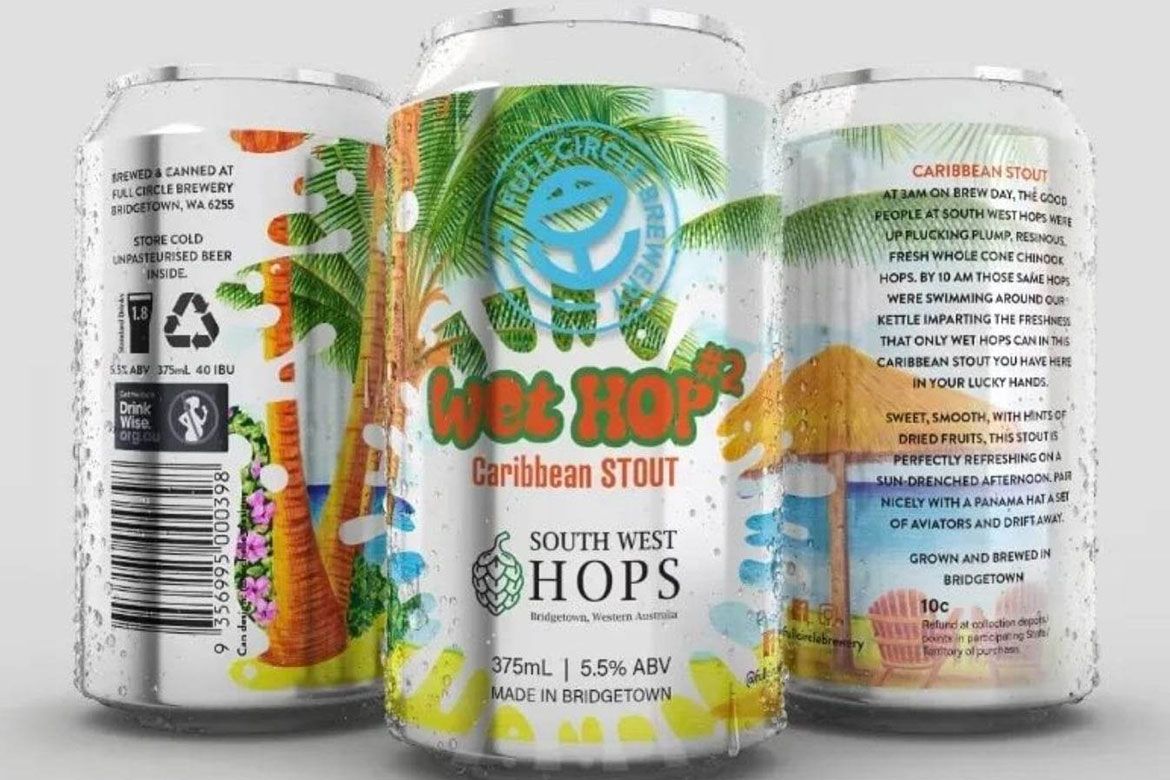
Preston Valley Farm: This is a tough one! I think I’m going to say the Nowhereman Wet Hop Red, Eagle Bay’s Triple Decoction Lager, and King Road’s Single Hop Pilsner.
South West Hops: They are all like our first-born children so hard to narrow down as we have loved them all equally, as they have our gorgeous hops in them.
Hopshed: So far, our hops cones have only been used in our own homebrews. This year we made a fantastic wet-hopped Flinders SMaSH ale.
Great Southern Hops: Boston always delivers a good wet hop beer! As our yields grow and we have more pellet hops we hope to be able to drink more locally-hopped beers.
What innovations can be found on your farm?
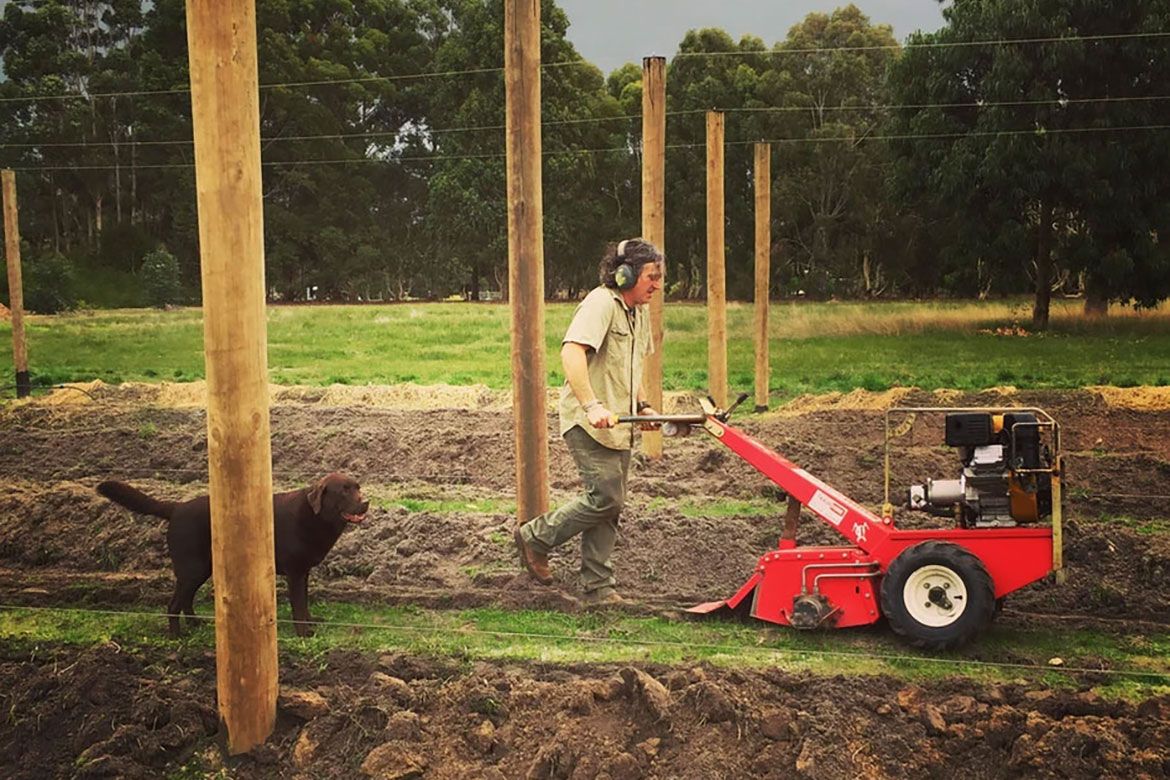
Preston Valley Farm: We’re proud to say that we produced the first-ever hops pellets in WA. We also designed and hand-built the majority of our harvesting and drying equipment as there is not a lot of equipment out there for the small-scale hop farmer; particularly on this side of the planet!
South West Hops: It's not new but we are focusing on regenerative farming principles where soil health is a priority. Working with No Frills Fertilisers from Margaret River, we have undertaken full soil and leaf analysis this season and will do the same for future seasons to understand opportunities and ensure our fertigation regime is robust and cost effective.
Karridale Hop Farm: We are what one might call a very hands-on hop farm. We hand-pick every single hop that goes into beer. Sometimes we wished it weren't so, but we have all really enjoyed the past eight years of our small hop farms harvest weekends. We wouldn't have it any other way … for now!
Our fresh dried hop pellets have been a fantastic improvement on our side of things and are being produced better than ever. Massive thanks to Arron at Preston Valley Hops having done all the hard yards with processing equipment. he is a champion, and we feel grateful to be able to work with him.
Hopshed: Because we focus on growing our hops for their rhizomes, we are trialling a few different techniques to increase lateral growth and to reduce the amount of labour required to dig up the plants to harvest the rhizomes in the winter.
Although not necessarily an innovation, we grow our hops using permaculture and organic principles, favouring organic fertilisers, and using sheep for weed control when the plants are dormant.
Great Southern Hops: I wouldn’t say we do anything new or groundbreaking on our farm and everything we develop, and build is loosely based around larger industrial machines. Farming organically and regeneratively is a major part of farming hops for us. This is not new but we feel it is really important; being a small-scale grower our focus is on the quality of hops so we are constantly evolving our farming and harvesting practices to make sure they can be as good as they possibly can be.
What do you think are your biggest assets as a small, indie producer?
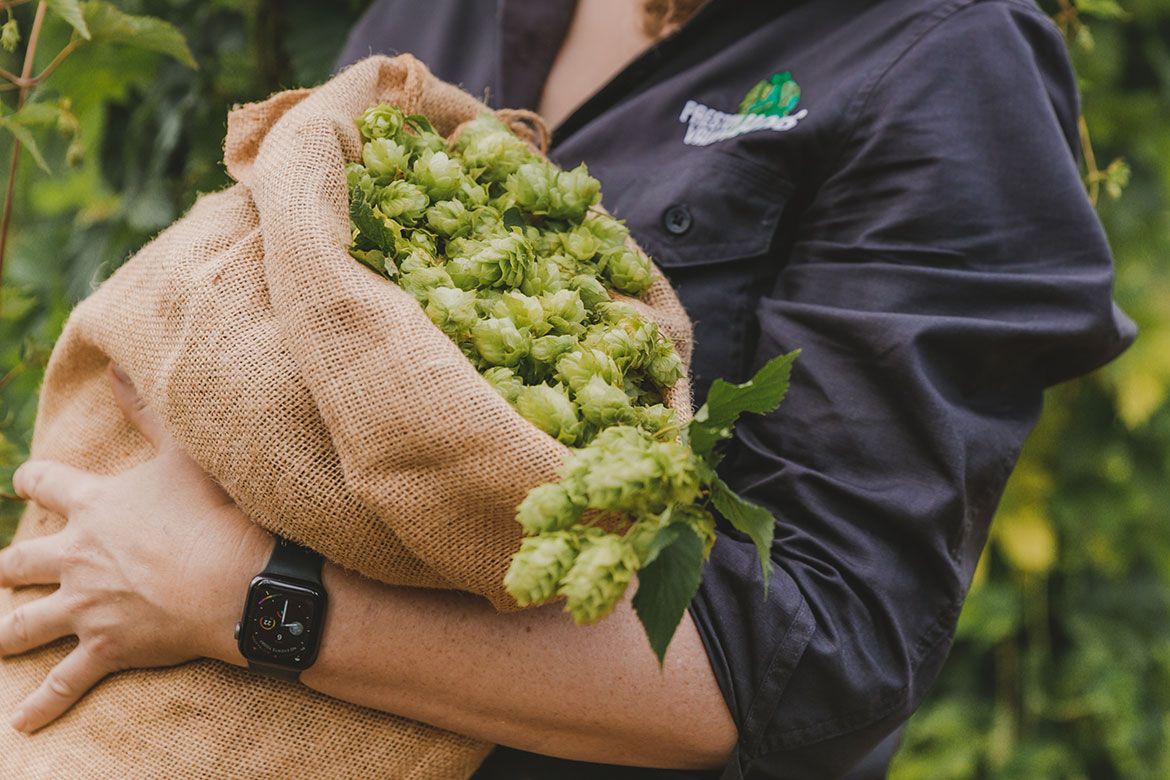
Preston Valley Farm: Being able to work with brewers on a personal level. Most brewers never get the opportunity to go to a hop selection or even visit a hop farm. With local farms the brewer and farmer can work together, building knowledge and experience along with creativity and freshness in the glass.
South West Hops: Local produce is key and Western Australians love to support local producers. We are grateful and appreciate the passion shown for our quality hop products.
Karridale Hop Farm: To be able to work together with local brewers and beer enthusiasts to select hop products that will be showcased in their beer, it has such a community feel about how the process continually evolves. Being able to offer fresh wet hops to brewers is an absolute buzz, we’re passionate about what we do and how we do it and hope it can come across in a beer that we get to enjoy … it’s very special.
Hopshed: The biggest assets we have as a small producer has been the encouragement that we have received from our family, friends, neighbours, local community, and hops-growing community. Despite having no experience and doing something totally different from the traditional sheep or cropping farming enterprises in our area, we have received nothing but interest, enthusiasm and complete support and encouragement from everyone around us.
Great Southern Hops: Being such a small-scale grower, we are able to work super close with the brewers to provide them with the best possible hops we can grow and have a direct relationship with them, getting feedback on how our hops are used and how they perform in the beer. It also gives us a chance to be able to educate brewers on growing hops because at the end of the day its agriculture and we are affected by the weather and all sorts so it’s good to be able to walk with them around the hop yard and discuss how the weather or insect pressure or weeds is effecting our yields etc.
Also, the cool thing about being so small is that we have a great relationship with the other small growers and share knowledge so that we can all grow better hops. We have developed the West Australian Hop Growers Association which is more focused on processing the hops. This will hopefully continue to instil some confidence within WA that the local hops are all equal quality as the commercial growers.
What's the biggest lesson you've learned so far?
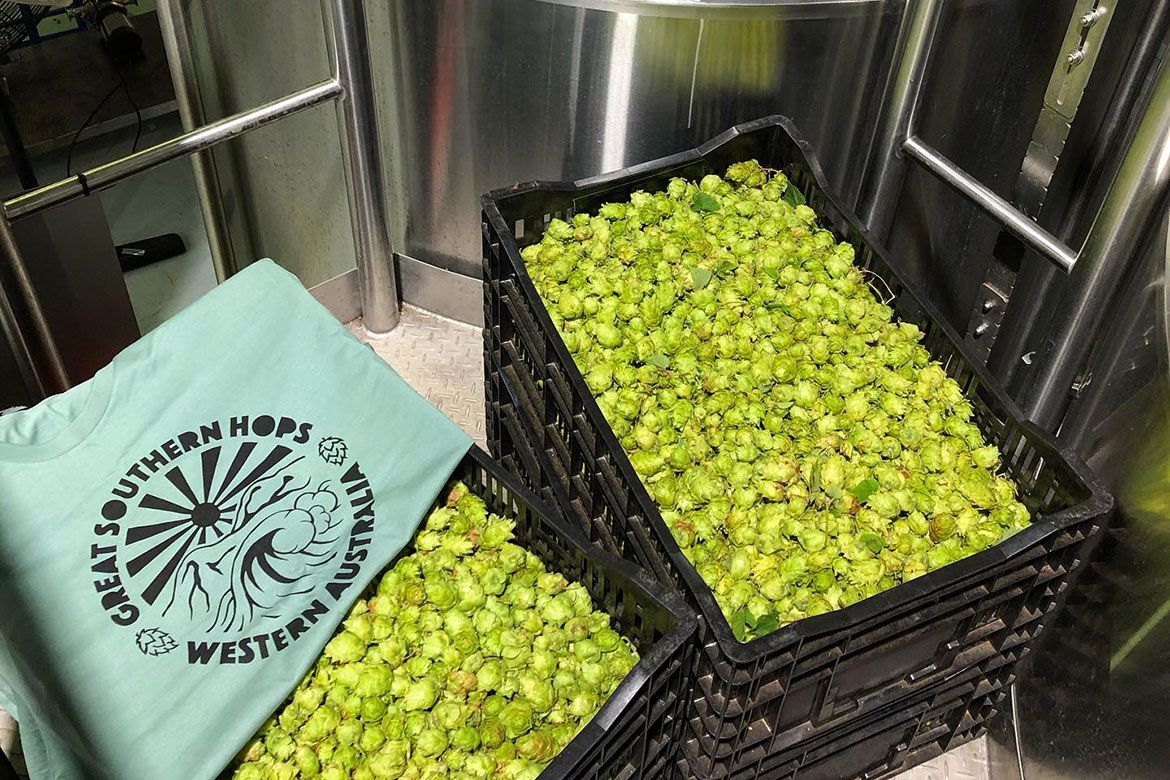
Preston Valley Farm: I’d say the biggest lesson is be willing to listen, share and help. We’re super lucky to be on this journey with our friends at Karridale Hops and Great Southern Hops and their willingness to share their lessons from their failures and successes has been so important. I think it’s an attitude that is mirrored in the WA brewing community.
South West Hops: We can’t know everything all at once. We have team meetings to discuss the highs and lows of each season and put plans in place to grow with each opportunity presented. We also speak with our peers and share techniques and practices. It is a fantastic community to be a part of.
Hopshed: The biggest lesson that we have learned so far is that when you turn a hobby into a commercial venture, there is a real risk of turning what you enjoy into a chore. We have had to take stock a few times and remind ourselves that we want to enjoy what we are doing and have had to set boundaries on the business, so it stays fun.
Great Southern Hops: So many lessons – it seems like every year we have it figured out but then at the end of that year we seem to have a whole load more lessons we have learnt. I don’t think this will ever stop. I guess for us it’s been more about the time growing and working with brewers. Only now do we feel we have the hop yard functioning as we like and have some really good relationships.



